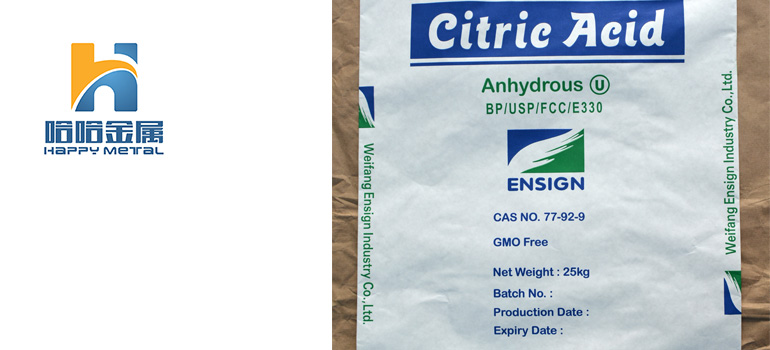Citric acid is a versatile substance widely used in the food and beverage industry, pharmaceuticals, and various other applications. It exists in different forms, with anhydrous citric acid and monohydrate citric acid being two common variants. Understanding the differences between these two forms is crucial for various industries to make informed decisions about their applications. In this blog post, we will delve into the distinctions between anhydrous citric acid and monohydrate citric acid, exploring their properties, uses, and advantages in different contexts.
Anhydrous Citric Acid
Anhydrous citric acid refers to citric acid in its pure, water-free form. It is typically produced by crystallizing citric acid from a solution in the absence of water. The absence of water molecules in its structure gives anhydrous citric acid certain properties and advantages that make it suitable for specific applications.
Properties of Anhydrous Citric Acid
Water Content: Anhydrous citric acid contains no water molecules in its crystalline structure, contributing to its dry and granular appearance.
Solubility: It has good solubility in water, making it easy to incorporate into various formulations.
Acidity: Anhydrous citric acid is highly acidic, which is a characteristic that makes it valuable in the food and beverage industry for its sour flavor.
Uses of Anhydrous Citric Acid
Food and Beverage Industry: Anhydrous citric acid is commonly used as a flavoring and preservative agent in the food and beverage industry. It enhances the taste of products and extends their shelf life.
Pharmaceuticals: It finds applications in pharmaceuticals as an acidulant in the preparation of effervescent tablets and liquids.
Cleaning Products: Anhydrous citric acid is also used in household cleaning products due to its acidic properties, aiding in the removal of scale and mineral deposits.
Monohydrate Citric Acid
Monohydrate citric acid, on the other hand, contains one water molecule per citric acid molecule. This hydration distinguishes it from the anhydrous form and imparts different characteristics and applications.
Properties of Monohydrate Citric Acid
Water Content: Monohydrate citric acid contains a single water molecule in its crystal structure, leading to a slightly different appearance compared to the anhydrous form.
Solubility: Like anhydrous citric acid, monohydrate citric acid is readily soluble in water, making it suitable for various formulations.
Acidity: It maintains the acidic properties of citric acid, contributing to its role in flavor enhancement.
Uses of Monohydrate Citric Acid
Food and Beverage Industry: Monohydrate citric acid is also widely used in the food and beverage industry, where it serves as an acidulant, preservative, and flavor enhancer.
Cosmetics: It finds applications in the cosmetics industry, where it is used in skincare products for its exfoliating and antioxidant properties.
Pharmaceuticals: Monohydrate citric acid is utilized in pharmaceuticals, especially in the formulation of oral medications where its solubility is advantageous.
Differences Between Anhydrous and Monohydrate Citric Acid
Water Content: The key difference lies in the water content, with anhydrous citric acid being completely water-free and monohydrate citric acid containing one water molecule per citric acid molecule.
Appearance: Anhydrous citric acid typically appears as dry, granular crystals, while monohydrate citric acid may have a different visual appearance due to its hydration.
Applications: While both forms are used in the food and beverage industry, anhydrous citric acid is often preferred in applications where water content needs to be minimized, such as in dry beverage mixes.
In conclusion, anhydrous citric acid and monohydrate citric acid are two variations of this versatile compound, each with its own set of properties and applications. Understanding the differences between these forms is crucial for industries that rely on citric acid for various purposes. Whether in the food and beverage industry, pharmaceuticals, or household products, choosing the right form of citric acid is essential to achieving the desired results. As we continue to explore and innovate, the distinctive properties of anhydrous and monohydrate citric acid will likely play a significant role in shaping their future applications.
Maybe you are interested in the following: Citric Acid’s Role in Crafting Flavorful Beverages




